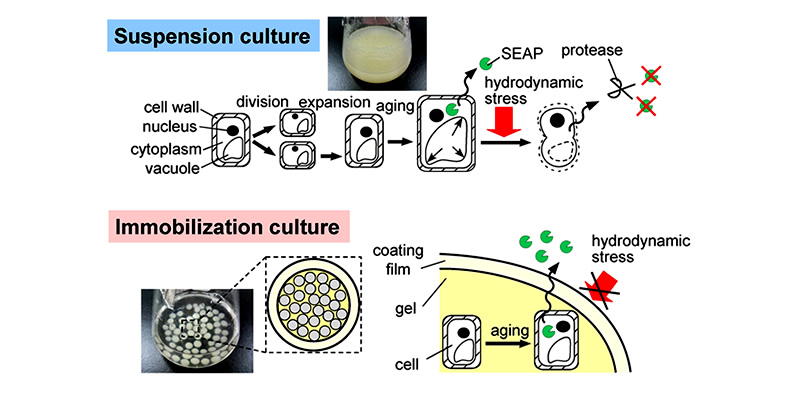Production of useful substances by culturing plant cells
Production of recombinant protein by plant cells has a number of advantages: 1) It has low risk of viral contamination and high safety because it uses a simple culture medium made only of inorganic salts and a carbon source; 2) It enables accurate folding of complex proteins and modification after translation; and 3) It is expected to reduce production costs due to the ease of large-scale culture. Cases have previously been reported of production of various proteins for pharmaceuticals such as human interleukin and immunoglobulin G. However, there have been problems such as that productivity is low because proteins secreted in the culture medium can easily denature or breakdown, and that sugar modifications after translation differ from the human type, and these may cause allergies when the drugs are administered.
In this research, our efforts include improving the ability to produce recombinant protein, developing new immobilized culture processes to enable complete suppression of any denaturation or decomposition of the secreted protein, and developing new hybrid glycotransferase to enable human type sugar modifications which do not cause allergies.

|


